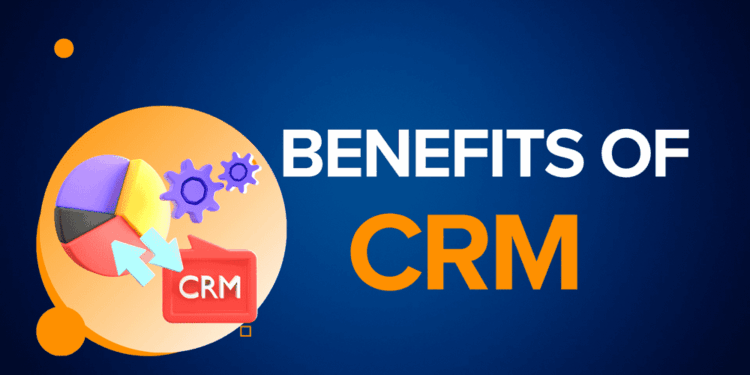Diving into the realm of Share CRM, this introduction sets the stage for an insightful exploration of how sharing CRM data can revolutionize team collaboration and boost productivity.
As we delve deeper, we will unravel the significance of integrating CRM data across platforms and the various methods available for seamless sharing.
Introduction to CRM Sharing
Sharing CRM data in a business context refers to the practice of distributing customer relationship management information among team members to enhance collaboration and productivity.
It is crucial for team members to have access to the same CRM data as it allows for a unified view of customer interactions, preferences, and history. By sharing this information, teams can work together more effectively, provide personalized customer experiences, and ultimately drive business growth.
Importance of Sharing CRM Data
- Improved Communication: Sharing CRM information ensures that all team members are on the same page and can communicate effectively with customers based on a holistic view of their interactions.
- Enhanced Collaboration: When team members have access to the same CRM data, they can collaborate seamlessly on tasks, projects, and customer accounts, leading to increased efficiency and better outcomes.
- Increased Productivity: By sharing CRM data, teams can avoid duplication of efforts, streamline processes, and focus on high-priority tasks, ultimately boosting productivity and performance.
Methods of Sharing CRM Data
When it comes to sharing CRM data, there are several methods and tools available that businesses can utilize. Each method has its own set of pros and cons, and understanding these can help organizations make informed decisions on how to share their CRM data effectively.
Additionally, integrating CRM with other platforms can further streamline the sharing process and enhance data accessibility across different departments.
Email Communication
- Pros: Easy and familiar method for sharing data, allows for direct communication with recipients.
- Cons: Limited security and control over data, potential for data breaches or leaks.
Cloud Storage Services
- Pros: Offers centralized storage accessible from anywhere, easy to share large files.
- Cons: Security concerns, dependency on internet connection for access.
CRM Mobile Apps
- Pros: Allows for real-time access to CRM data on-the-go, enables quick sharing and collaboration.
- Cons: Limited functionality compared to desktop versions, potential security risks on mobile devices.
API Integrations
- Pros: Enables seamless sharing of data between CRM and other platforms, automates data transfer processes.
- Cons: Requires technical expertise for setup and maintenance, potential compatibility issues with different systems.
Security Measures for Shared CRM Data
In today's digital age, securing shared CRM data is of utmost importance to protect sensitive information and maintain trust with customers. Implementing robust security measures ensures that data remains confidential, integrity is preserved, and availability is controlled.
Importance of Securing Shared CRM Data
- Protecting customer information: Safeguarding CRM data prevents unauthorized access to personal and financial details, maintaining customer trust.
- Preventing data breaches: Secure sharing practices help prevent data breaches that can lead to financial loss, reputational damage, and legal consequences.
- Compliance with regulations: Following security measures ensures compliance with data protection laws and industry regulations, avoiding penalties and fines.
Best Practices for Ensuring CRM Data Security
- Implement strong encryption: Utilize encryption protocols to secure data both in transit and at rest, ensuring that only authorized users can access sensitive information
.
- Enforce access controls: Set up role-based access controls to limit permissions based on user roles, reducing the risk of unauthorized data access.
- Regularly update security measures: Stay current with security patches, software updates, and best practices to mitigate emerging threats and vulnerabilities.
Encryption and Access Controls for Safeguarding CRM Information
Encryption and access controls play a crucial role in safeguarding shared CRM information by:
- Encrypting data: Using strong encryption algorithms to encode data, making it unreadable to unauthorized parties even if intercepted during transmission.
- Implementing multi-factor authentication: Adding an extra layer of security by requiring multiple forms of verification before granting access to CRM systems or data.
- Auditing access logs: Monitoring and reviewing access logs to track user activity, detect anomalies, and identify potential security breaches in real-time.
Collaborative CRM Practices
Collaborative CRM practices involve leveraging shared CRM data to foster teamwork and communication within an organization to enhance customer relationships. By breaking down silos and promoting collaboration among different departments, businesses can provide a more seamless and personalized experience for their customers.
Enhancing Customer Relationships
Collaborative CRM practices can enhance customer relationships by allowing different teams, such as sales, marketing, and customer service, to work together towards a common goal of customer satisfaction. By sharing CRM data across departments, employees can have a comprehensive view of each customer's interactions and preferences, leading to more personalized and targeted communication.
- Improved Communication: With shared CRM data, teams can easily access customer information and collaborate on strategies to better serve customers.
- Streamlined Processes: Collaborative CRM practices can help streamline processes by eliminating duplicate efforts and ensuring a consistent customer experience across all touchpoints.
- Enhanced Customer Satisfaction: By working together and sharing insights, teams can anticipate customer needs and provide proactive solutions, ultimately leading to increased customer satisfaction and loyalty.
Successful Collaborative CRM Strategies
Examples of successful collaborative CRM strategies include implementing cross-functional teams, utilizing CRM software that allows for easy data sharing, and establishing clear communication channels between departments. Companies like Amazon and Zappos have excelled in collaborative CRM by integrating customer feedback across all departments and using shared data to personalize the customer experience.
By fostering collaboration and sharing CRM data effectively, businesses can create a unified customer experience that builds trust and loyalty.
Personalized Customer Experience
Shared CRM data enables businesses to create a more personalized customer experience by tailoring interactions based on individual preferences and past interactions. For instance, a customer who has previously purchased a specific product can be targeted with personalized recommendations or promotions, enhancing their overall experience with the brand.
- Customized Marketing Campaigns: By analyzing shared CRM data, businesses can create targeted marketing campaigns that resonate with specific customer segments, leading to higher engagement and conversion rates.
- Proactive Customer Service: With access to shared CRM data, customer service teams can anticipate customer needs and provide proactive support, demonstrating a deep understanding of each customer's unique requirements.
- Improved Cross-Selling and Up-Selling: Shared CRM data can help identify cross-selling and up-selling opportunities by analyzing customer behavior and preferences, allowing businesses to maximize revenue and customer lifetime value.
End of Discussion
In conclusion, the power of shared CRM data in enhancing customer relationships and tailoring experiences cannot be overstated. Share CRM opens doors to a more personalized approach that fosters stronger connections and drives business growth.
FAQ Resource
What does sharing CRM mean in a business context?
Sharing CRM in a business context involves disseminating customer data and insights across team members to enhance collaboration and decision-making.
How can encryption safeguard shared CRM information?
Encryption can protect shared CRM data by converting it into a secure code that can only be accessed by authorized users with the decryption key.
Why is collaborative CRM essential for customer relationships?
Collaborative CRM practices promote teamwork and information sharing among departments, leading to a unified approach in serving and understanding customers better.






